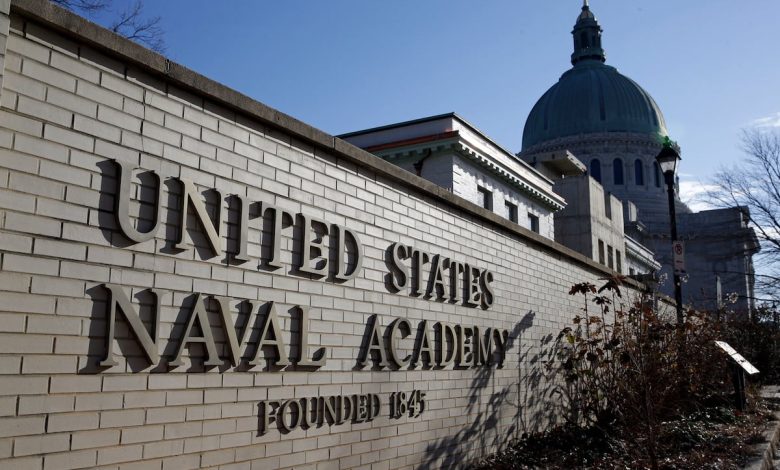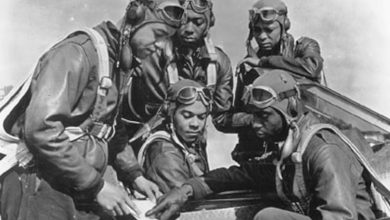Naval Academy ruling shows military strength depends on diversity

The 1989 movie “Glory,” which earned Denzel Washington his first Oscar, tells the Civil War-era story of one of America’s first all-Black military regiments and the racism they had to overcome on their path to victory. At one point, recognizing the importance of soldiers ready to step up if the unit’s flag bearer should fall, the colonel asks, “If this man should fall, who will lift the flag and carry on?” Now, as we face the newest battle in the fight for racial equality — this time in military academy admissions — Black women veterans are leading efforts to protect opportunities for the next generation of military leaders.
In last year’s U.S. Supreme Court decision in Students for Fair Admissions v. Harvard and Students for Fair Admissions v. University of North Carolina, the court struck down affirmative action policies used at the two schools, but confirmed that they may lawfully “consider … an applicant’s discussion of how race affected his or her life, be it through discrimination, inspiration, or otherwise.” The court also explicitly carved out military academies from the decision “in light of the potentially distinct interests that military academies may present.” Soon after, Students for Fair Admissions (SFFA) filed new lawsuits attacking racial diversity in the military academy admissions at the U.S. Naval Academy and West Point.
Last Friday, a federal judge ruled in favor of maintaining the U.S. Naval Academy’s affirmative action policies, allowing the continued consideration of race in its admissions process. This decision reinforces the importance of diversity in shaping a leadership corps equipped to tackle the complex global challenges of our time. It also unequivocally rejects the SFFA’s effort to extend the Supreme Court’s 2023 ruling banning affirmative action at colleges to military academies.
Applying to a military academy is more like applying for entry to a job than a traditional college. If the students admitted to military academies are not racially diverse, it can impact the pool of potential officers. Decades of evidence show that Black people are overrepresented in the enlisted ranks of the military, but they still face incredible obstacles to reach the officer ranks, especially at the highest levels of military command. For example, in the Navy, Black sailors make up almost 20% of enlisted service members but less than half of that — just 9% — of the officer ranks. In fact, only 10 admirals of the 268 in the Navy were Black as of 2020. Military academies have an oversized impact in filling the most senior officer positions. For instance, 90% of the Navy’s chiefs of operations are graduates of the Naval Academy.
The impact of the lack of diversity in the Navy’s officer corps was hotly contested during the trial. The government argued that a racially diverse officer corps was a “national security imperative,” presenting evidence and testimony about its practical and strategic benefits. For example, racial diversity in the officer corps improves retention and recruitment.
In an ACLU amicus brief on behalf of the National Association of Black Military Women (NABMW) and others, the NABMW described disparities in the promotion of service members of color, noting that they had fewer role models for professional development, lacked social capital and were underexposed to career-broadening opportunities. Officers of color provided mentorship and were more attuned to addressing discrimination within the military.
Additionally, the government identified strategic benefits of a racially diverse officer corps, including unit cohesion, which makes missions more effective and strengthens legitimacy in our country and abroad. Captain Jason Burch, a former Navy SEAL, testified that his presence as a Black officer made Black service members more comfortable reporting harassment and enhanced the Navy’s legitimacy in China and Bangladesh.
SFFA attempted to rewrite the past and present realities of discrimination in the military. In support of their misrepresentations, SFFA relied on testimony from retired Brig. Gen. Christopher Walker that he never experienced racism in the military in his over 40 years of service and that racism in the military ended after the Vietnam War. However, Walker’s opinions were contradicted at every turn. For decades, defense secretaries and military leaders across presidential administrations from both parties have sought to increase racial diversity, describing it as a “unique strength of the military” and a “strategic imperative critical to mission readiness, accomplishment, and a leadership requirement.” Further, an independent racial disparity review conducted by the Air Force confirmed that racism in the military is not dead. Fifty percent of Black airmen reported that they experienced racial discrimination from other airmen. Walker’s conclusions simply weren’t credible in light of the evidence.
Last week’s ruling reaffirmed that the military’s strength lies in its diversity and that a diverse leadership corps is essential to fostering an environment where all service members can thrive. Black armed forces veterans and their allies have carried the flag in this fight for opportunity and access to military academies.
Now, with this victory, we must remain vigilant in protecting diversity in military institutions. However, just days later, a new lawsuit was filed against the U.S. Air Force Academy, challenging its race-conscious admission policies. While last week’s ruling was a crucial victory, it is clear we must remain vigilant in protecting diversity in both military and civilian institutions. Together, we can ensure that America’s strength continues to rest in the diversity that drives innovation, resilience and justice.
Leah Watson is a senior staff attorney with the ACLU’s Racial Justice Program.
Read the full article here






